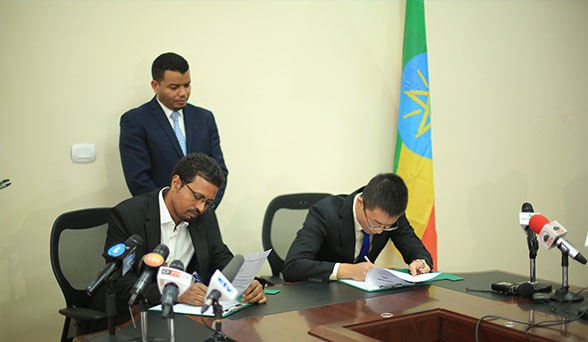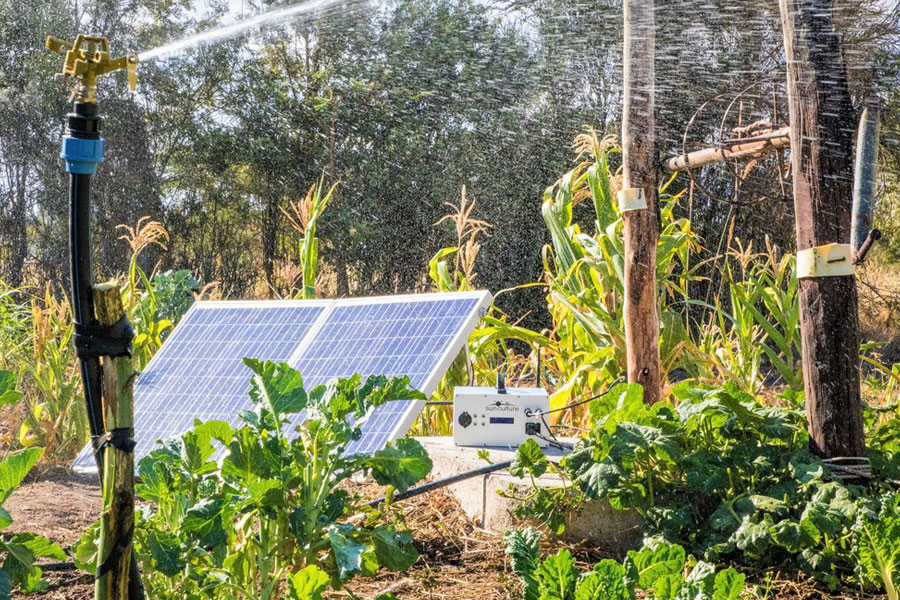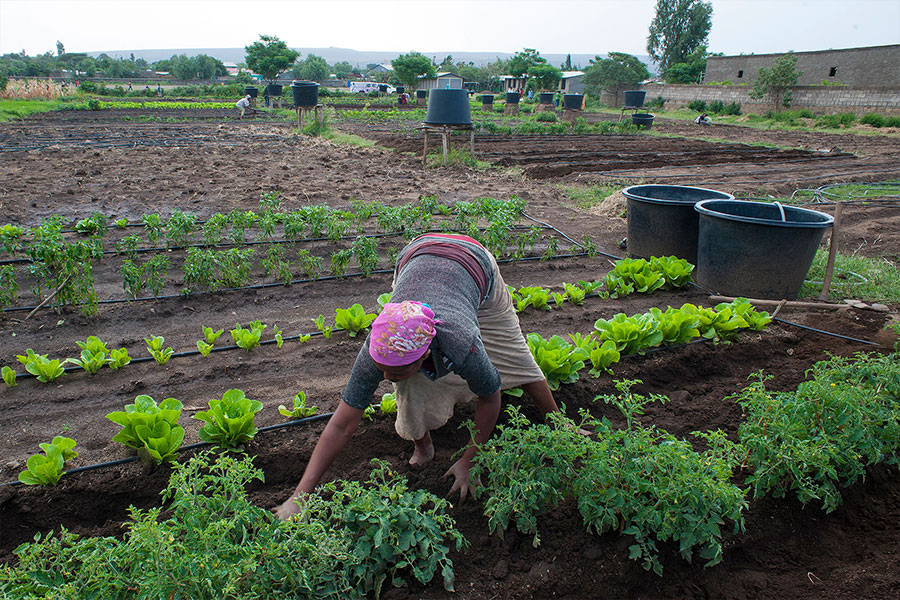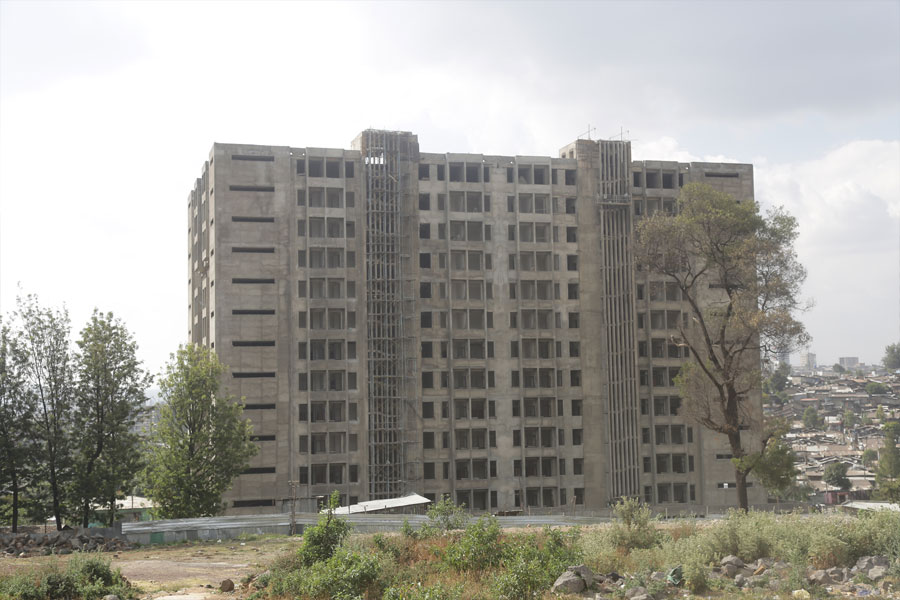
Radar | Jan 27,2024
The Finnish and Ethiopian governments have committed 18 million euros to launch the fourth phase of a project that works on hygiene and sanitation at the beginning of this coming January. The project will be launched in six regional states to benefit one million people.
Having a four-year span, the Community-Led Accelerated Water, Sanitation & Hygiene (CO-WASH) project will be supervised by the Ministry of Water, Irrigation, & Energy. The project includes installing water pipes at the houses of beneficiaries and ensuring water point accessibility for people with disabilities.
The Finnish government has allocated 18.4 million euros for the project along with capacity building, while the government of Ethiopia will be responsible for physical infrastructure development. Finland has also pledged an additional four million euros for other water projects in the country.
A federal technical team comprised of government representatives from both countries will choose the consulting team for the upcoming project. The consulting team will be accrued through an international bid by the Finnish government. The project aims to convince half of the community under the project to begin using toilets. It also targets to increase access to safe water in the area by 35pc and rural water supply access by 85pc.
The number of the projects and the method of approach will be decided by the consulting team, according to Melaku Tekola, community and knowledge management advisor for CO-WASH.
"If the team finds the community-managed project used in the third phase preferable, they could continue with it," he said. "If they have another methodology and approach, they may also apply that instead."
The project will be implemented across Amhara, Tigray, Oromia, Benishangul-Gumuz, and Southern Nations, Nationalities & People's regional states, as well as the tenth and latest regional state for the nation, Sidama. The community from these regional states cover 15pc of the COWASH projects.
The third phase of COWASH, which expired last June, was started in 2011 and was implemented across 76 rural districts of Amhara, Tigray, Oromia, Benishangul-Gumuz, SNNP regional states. It has built 16,961 water points for communities, schools and health facilities. Sanitation, a major component, has seen the construction of 814,000 latrines and the project has addressed 4.3 million people overall.
The result of the third phase was more than what was planned due to the community's high contribution in the projects, which covered almost 33pc, according to Melaku.
"The community contributed by digging, carrying stones and wood for the construction of water and sanitation points," he said. "We'd planned to do these activities by payment, but they did it for free."
The functionality of these projects is at 93pc, and it has cost a total of 2.7 billion Br. The countries have contributed 1.1 billion Br and 1.6 billion Br, respectively.
The mandatory contribution of the community to the projects is a contentious subject for some, according to the local community.
The cost in the construction of sanitation in the community should be fully covered by the project, according to Yohanes Tadesse, project advisor at Belo Jiganfoy Wereda in Benishangul-Gumuz Regional State.
"The 15pc contribution is beyond the capacity of the community," he said. "In the upcoming phase, the community demands COWASH to cover everything."
The main challenges throughout the three COWASH phases included lack of commitment of targeted weredasand high turnover of staff in decision-making bodies working on the projects. Lack of attention to the activities under the project, incorrect perception of the project aim by the community, and bureaucratic delays were part of it, according to Melaku.
Abebe Dinku (PhD), a civil engineering expert and lecturer at Addis Abeba University who has conducted research on water and sanitation, believes that the contribution of the community in such projects is important, as it creates a sense of ownership.
But the obligatory nature of such contributions must consider the status of the community, according to him.
"Some can contribute, and others may not be able to," he said. "In cases like this, it's better for the regional government to cover such costs."
PUBLISHED ON
Oct 17,2020 [ VOL
21 , NO
1068]

Radar | Jan 27,2024

Sponsored Contents | Mar 28,2022

Radar | Oct 15,2022

Fortune News | Apr 20,2019

Fortune News | Apr 03,2023

Fortune News | Dec 25,2021

Fortune News | Dec 04,2022

Radar | Jan 15,2022

Radar | Jul 13,2019

Radar | Aug 17,2019

Dec 22 , 2024 . By TIZITA SHEWAFERAW
Charged with transforming colossal state-owned enterprises into modern and competitiv...

Aug 18 , 2024 . By AKSAH ITALO
Although predictable Yonas Zerihun's job in the ride-hailing service is not immune to...

Jul 28 , 2024 . By TIZITA SHEWAFERAW
Unhabitual, perhaps too many, Samuel Gebreyohannes, 38, used to occasionally enjoy a couple of beers at breakfast. However, he recently swit...

Jul 13 , 2024 . By AKSAH ITALO
Investors who rely on tractors, trucks, and field vehicles for commuting, transporting commodities, and f...

Oct 18 , 2025
The political establishment, notably the ruling party and its top brass, has become p...

Oct 11 , 2025
Ladislas Farago, a roving Associated Press (AP) correspondent, arrived in Ethiopia in...

Oct 4 , 2025
Eyob Tekalegn (PhD) had been in the Governor's chair for only weeks when, on Septembe...

Sep 27 , 2025
Four years into an experiment with “shock therapy” in education, the national moo...